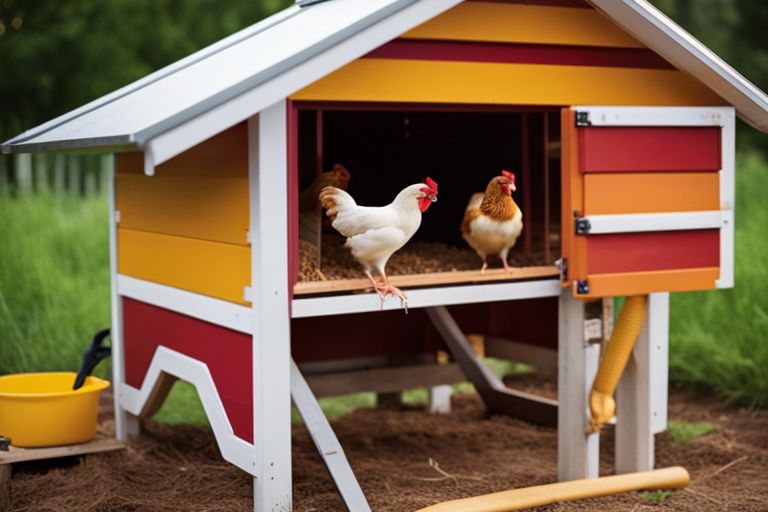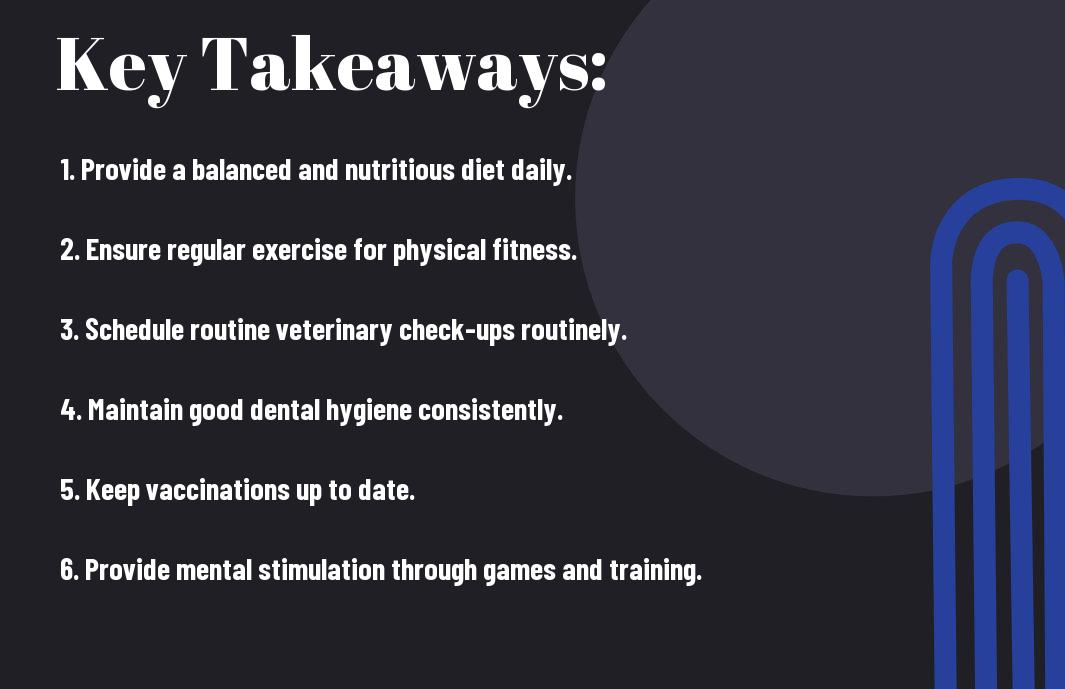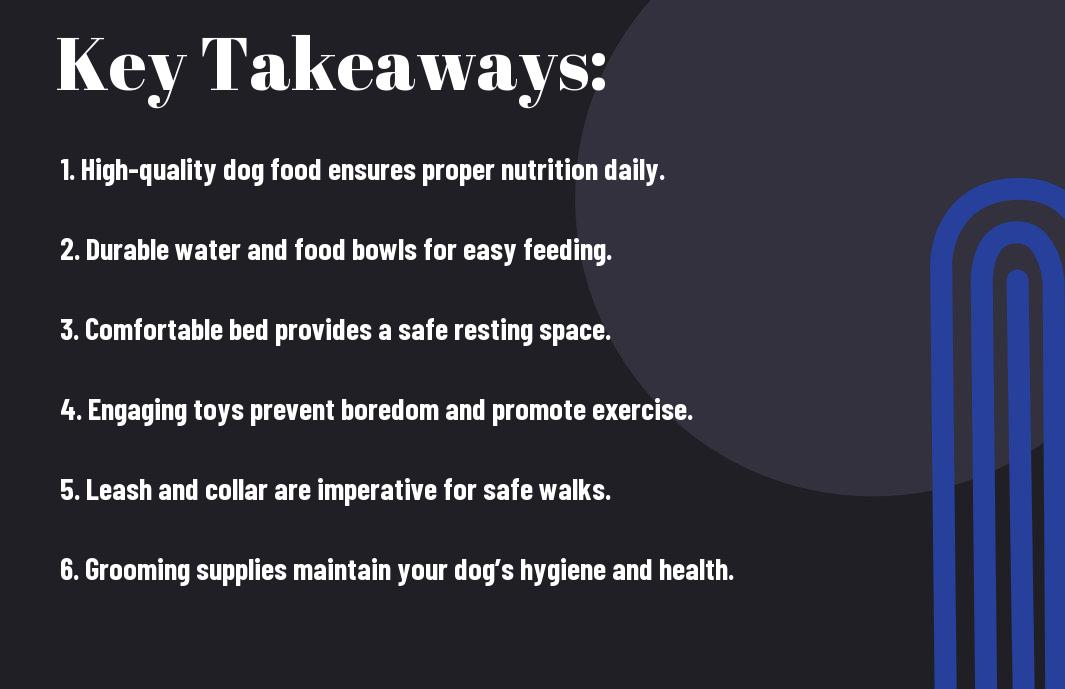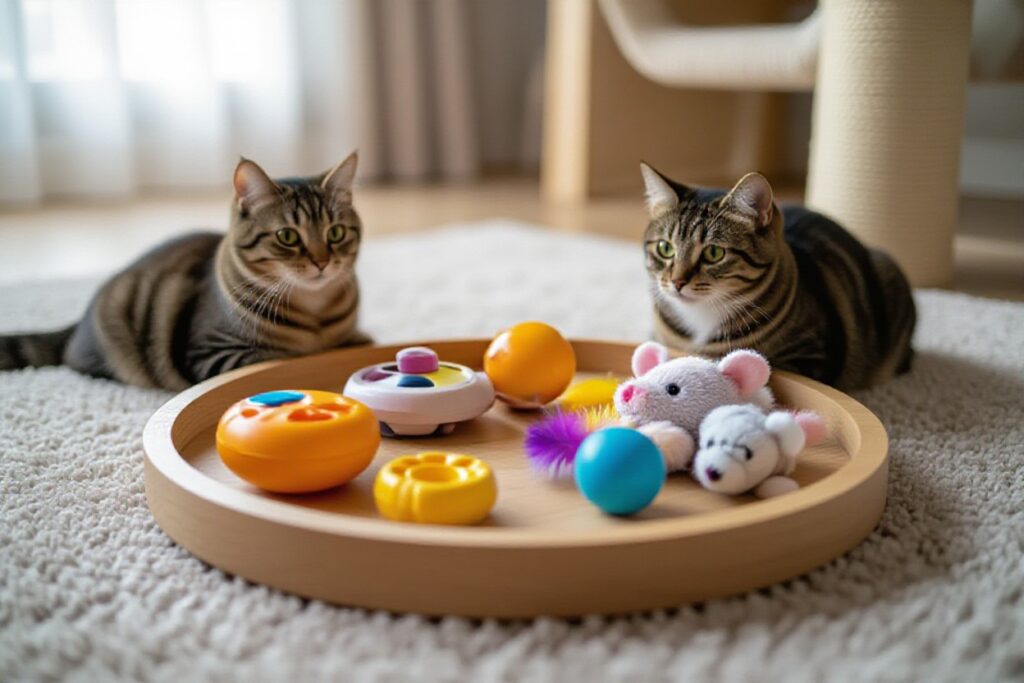Just like SUVs dominate the American vehicle landscape, keeping your poultry coop clean is imperative for the health and well-being of your feathered friends. Maintaining a clean coop not only helps prevent diseases but also provides a comfortable living environment for your chickens. In this blog post, we will provide you with imperative tips to ensure your coop stays spotless and your flock happy and healthy.
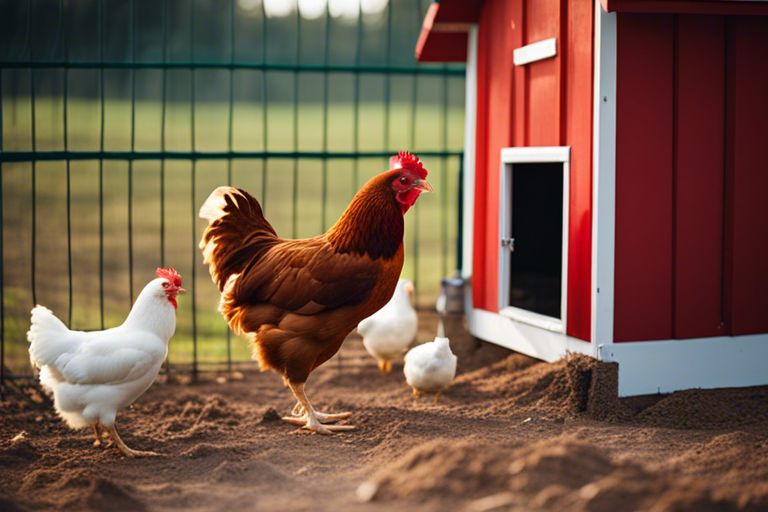
Daily Maintenance Routines
Visual Inspections and Immediate Actions
Daily visual inspections of your poultry coop are crucial for maintaining a clean and healthy environment for your birds. Look for any signs of pests, mold, or soiled bedding, and take immediate action to address any issues to prevent potential health hazards. Regularly check for any leaks in the roof or walls, as well as any damage to the coop structure that could compromise the safety of your flock.
Managing Food and Water Stations
Daily management of your poultry’s food and water stations is imperative for ensuring your birds have access to fresh and clean supplies. It is recommended to provide fresh food and water daily, making sure to remove any spilled feed or soiled water to prevent contamination and bacteria growth. Properly store your feed in airtight containers to maintain freshness and prevent pests from accessing it.
It is also important to regularly clean and sanitize your feeders and waterers to prevent the spread of diseases among your flock. Use mild dish soap and warm water to scrub these items thoroughly and rinse well before refilling. By practicing good food and water management, you can promote the overall health and well-being of your poultry.
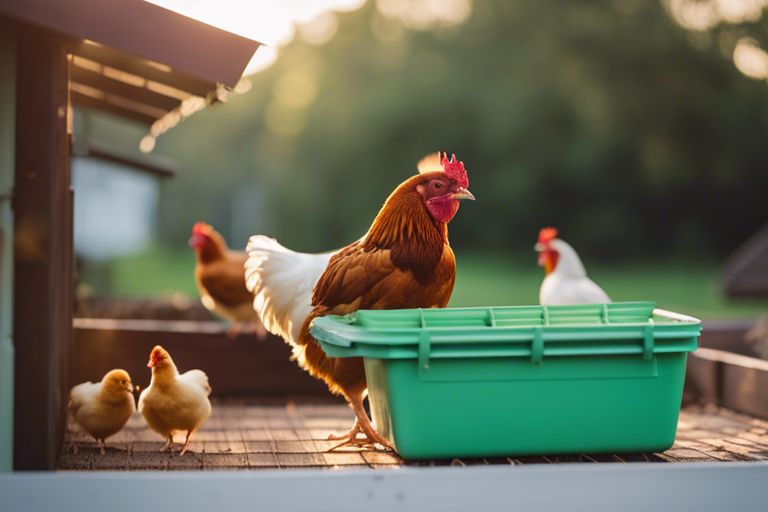
Weekly and Monthly Cleaning Procedures
Little by little, keeping up with weekly and monthly cleaning tasks can ensure a healthy environment for your poultry. Regular maintenance of the coop is important to prevent the spread of diseases and maintain the welfare of your birds.
Deep Cleaning and Disinfecting Methods
An integral part of your cleaning routine should include deep cleaning and disinfecting the coop on a monthly basis. Use a poultry-safe disinfectant to clean all surfaces thoroughly, including perches, feeders, and waterers. Remove all bedding and nesting materials, scrub the coop with a mild detergent, and allow it to air dry completely before adding fresh bedding.
Addressing Bedding and Nesting Materials
Any soiled bedding or nesting materials should be removed and replaced regularly. Clean out nesting boxes at least once a week to prevent the build-up of bacteria and pests. Consider using natural materials such as straw or pine shavings, which are absorbent and easy to clean.
Cleaning and replacing bedding not only keep your coop smelling fresh but also reduce the risk of respiratory issues and pests infestations among your flock.
Preventing Pests and Diseases
Recognizing Common Coop Threats
One of the most important aspects of keeping your poultry healthy is being able to recognize common coop threats. These can include parasites like mites and lice, as well as diseases such as avian flu or coccidiosis. Regularly inspecting your flock and their living quarters can help you spot any issues early on.
Strategies for Natural and Chemical Prevention
Coop owners can employ a combination of natural and chemical prevention strategies to keep pests and diseases at bay. Natural methods include using diatomaceous earth or herbs like garlic and oregano, which have natural repellent properties. Chemical options like poultry-safe insecticides may be necessary in severe infestations but should be used cautiously to avoid harm to your birds.
Pests and diseases can quickly spread in a coop environment, posing a serious threat to your flock’s health. Taking proactive measures to prevent infestations and illnesses is key to maintaining a clean and healthy coop. Regular cleaning, proper ventilation, and monitoring your birds’ behavior are imperative in safeguarding them against potential threats.
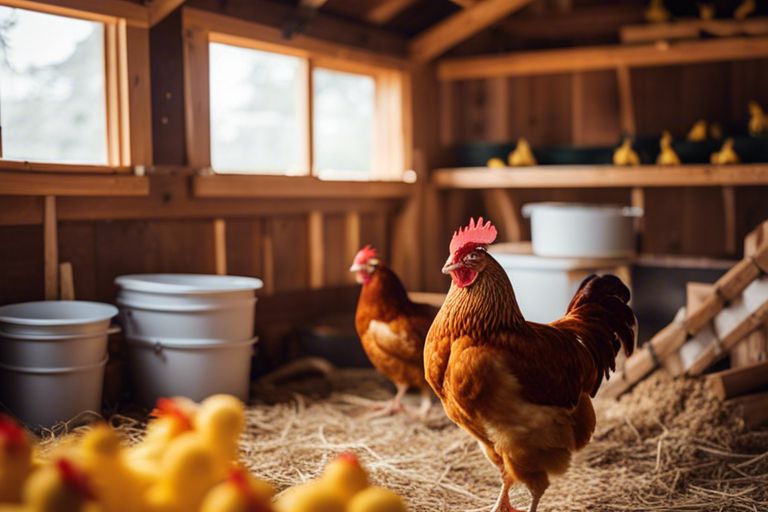
Organizing Your Cleaning Schedule
Once again, keeping a clean coop is imperative for the health and well-being of your poultry. To ensure that you stay on top of your cleaning routine, it’s crucial to create an effective cleaning calendar that outlines specific tasks to be done daily, weekly, and monthly.
Creating an Effective Cleaning Calendar
Cleaning your poultry coop regularly is vital in preventing the buildup of bacteria and parasites that can harm your birds. By creating a cleaning calendar, you can schedule tasks such as removing soiled bedding, scrubbing feeders and waterers, and disinfecting the coop. This helps maintain a healthy environment for your flock and makes cleaning more manageable.
Record-Keeping and Monitoring Coop Health
One of the key aspects of poultry care is to keep track of your flock’s health and the cleanliness of their living space. Regularly monitoring your coop allows you to quickly identify any changes in behavior or signs of illness in your birds. Keeping detailed records of your cleaning schedule and any health issues can help you spot patterns and make informed decisions about your flock’s well-being.
Record-keeping is imperative for poultry owners to track the effectiveness of their cleaning routine and monitor the health of their birds. By maintaining detailed records, you can easily identify any changes in your flock’s health or any issues in the cleanliness of their coop. This information is invaluable in proactively addressing any potential problems and ensuring the overall well-being of your poultry.
Conclusion
Considering all points, maintaining a clean coop is crucial for the health and well-being of your poultry. By following the important tips outlined in this guide, such as daily spot cleaning, weekly deep cleaning, coop ventilation, and proper waste management, you can create a healthier environment for your birds and reduce the risk of diseases. Note, a clean coop is a happy coop!
FAQ
Q: Why is it important to keep your coop clean?
A: Keeping your coop clean is crucial for the health and well-being of your poultry. A clean environment helps prevent the spread of diseases and parasites, reduces stress on the birds, and promotes overall hygiene.
Q: How often should I clean my poultry coop?
A: It is recommended to clean your poultry coop at least once a week. However, certain factors such as the size of the coop, number of birds, and the season may require more frequent cleanings.
Q: What are the vital tools needed for cleaning a poultry coop?
A: Some vital tools for cleaning a poultry coop include a shovel or rake for removing bedding, a broom for sweeping, a bucket for carrying waste, a hose for washing, and a scrub brush for stubborn stains.
Q: How can I effectively control odors in the poultry coop?
A: To control odors in the poultry coop, make sure to regularly remove soiled bedding, clean feed and water containers, provide proper ventilation, and use products like lime or diatomaceous earth to absorb odors.
Q: What is the best bedding material for a poultry coop?
A: The best bedding material for a poultry coop is straw, hay, or wood shavings. These materials are absorbent, provide insulation, and are comfortable for the birds to nest in.
Q: How can I prevent the buildup of moisture in the poultry coop?
A: To prevent the buildup of moisture in the poultry coop, ensure proper ventilation, use absorbent bedding, fix any leaks or gaps in the coop, and avoid overfilling water containers.
Q: Are there any natural methods for pest control in a poultry coop?
A: Yes, natural methods for pest control in a poultry coop include using diatomaceous earth, planting herbs like mint or lavender around the coop, and introducing beneficial insects like ladybugs or parasitic wasps.
